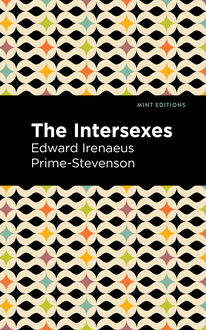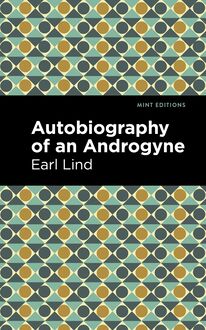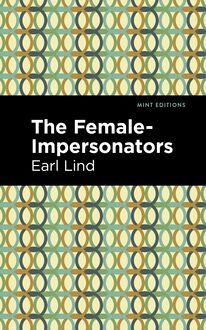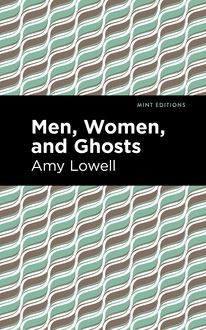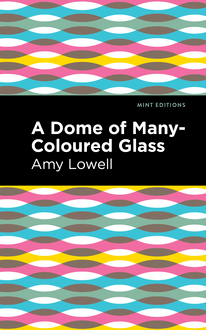-
 Univers
Univers
-
 Ebooks
Ebooks
-
 Livres audio
Livres audio
-
 Presse
Presse
-
 Podcasts
Podcasts
-
 BD
BD
-
 Documents
Documents
-
- Cours
- Révisions
- Ressources pédagogiques
- Sciences de l’éducation
- Manuels scolaires
- Langues
- Travaux de classe
- Annales de BEP
- Etudes supérieures
- Maternelle et primaire
- Fiches de lecture
- Orientation scolaire
- Méthodologie
- Corrigés de devoir
- Annales d’examens et concours
- Annales du bac
- Annales du brevet
- Rapports de stage
La lecture à portée de main
Vous pourrez modifier la taille du texte de cet ouvrage
Découvre YouScribe en t'inscrivant gratuitement
Je m'inscrisDécouvre YouScribe en t'inscrivant gratuitement
Je m'inscrisEn savoir plus
Vous pourrez modifier la taille du texte de cet ouvrage
En savoir plus

Description
The Longest Journey (1907) is a novel by English author E.M. Forster. Despite its critical success, the novel was a commercial failure for Forster, but has since grown in reputation and readership to help cement his reception as one of twentieth century England’s most talented writers.
Rickie Elliot enters Cambridge as a young man, exploring his interests in poetry and art and joining a circle of intellectuals centered around a philosopher named Stewart Ansell. An orphan, Rickie cherishes his small number of friends, including Agnes and her brother Herbert, who were his only companions as a youth. When Agnes’s fiancé dies in a football match, Rickie steps in to console her, and the two become engaged. Shortly afterward, a visit to Rickie’s elderly Aunt leads to his discovery of a stepbrother named Stephen, and the young scholar is plunged into the past and forced to face his family’s secret history. While Agnes, now his wife, encourages him to reject Stephen, Rickie struggles with his feelings and takes his frustration out on his pupils at the dormitory school where he has been appointed to teach classics. Cut off from his Cambridge friends, and growing apart from Agnes, Rickie makes an effort to connect with Stephen, who has grown to be a troubled young man. Between literary fame and married life, the bonds of family and friendship, Rickie’s story of hardship and personal development poses poignant questions regarding social conventions, infidelity, and the life of a struggling artist. The Longest Journey is a powerful bildungsroman and the second novel published by English literary icon E.M. Forster.
With a beautifully designed cover and professionally typeset manuscript, this edition of E.M. Forster’s The Longest Journey is a classic of English literature reimagined for modern readers.
Sujets
Informations
| Publié par | Mint Editions |
| Date de parution | 12 janvier 2021 |
| Nombre de lectures | 0 |
| EAN13 | 9781513275666 |
| Langue | English |
| Poids de l'ouvrage | 1 Mo |
Informations légales : prix de location à la page 0,0500€. Cette information est donnée uniquement à titre indicatif conformément à la législation en vigueur.
Extrait
The Longest Journey
E.M. Forster
The Longest Journey was first published in 1907.
This edition published by Mint Editions 2021.
ISBN 9781513270661 | E-ISBN 9781513275666
Published by Mint Editions ®
minteditionbooks.com
Publishing Director: Jennifer Newens
Design & Production: Rachel Lopez Metzger
Typesetting: Westchester Publishing Services
C ONTENTS P ART 1. C AMBRIDGE I II III IV V VI VII VIII IX X XI XII XIII XIV XV P ART 2. S AWSTON XVI XVII XVIII XIX XX XXI XXII XXIII XXIV XXV XXVI XXVII XXVIII P ART 3. W ILTSHIRE XXIX XXX XXXI XXXII XXXIII XXXIV XXXV
PART 1
CAMBRIDGE
I
“ T he cow is there,” said Ansell, lighting a match and holding it out over the carpet. No one spoke. He waited till the end of the match fell off. Then he said again, “She is there, the cow. There, now.”
“You have not proved it,” said a voice.
“I have proved it to myself.”
“I have proved to myself that she isn’t,” said the voice. “The cow is not there.” Ansell frowned and lit another match.
“She’s there for me,” he declared. “I don’t care whether she’s there for you or not. Whether I’m in Cambridge or Iceland or dead, the cow will be there.”
It was philosophy. They were discussing the existence of objects. Do they exist only when there is some one to look at them? Or have they a real existence of their own? It is all very interesting, but at the same time it is difficult. Hence the cow. She seemed to make things easier. She was so familiar, so solid, that surely the truths that she illustrated would in time become familiar and solid also. Is the cow there or not? This was better than deciding between objectivity and subjectivity. So at Oxford, just at the same time, one was asking, “What do our rooms look like in the vac.?”
“Look here, Ansell. I’m there—in the meadow—the cow’s there. You’re there—the cow’s there. Do you agree so far?” “Well?”
“Well, if you go, the cow stops; but if I go, the cow goes. Then what will happen if you stop and I go?”
Several voices cried out that this was quibbling.
“I know it is,” said the speaker brightly, and silence descended again, while they tried honestly to think the matter out.
Rickie, on whose carpet the matches were being dropped, did not like to join in the discussion. It was too difficult for him. He could not even quibble. If he spoke, he should simply make himself a fool. He preferred to listen, and to watch the tobacco-smoke stealing out past the window-seat into the tranquil October air. He could see the court too, and the college cat teasing the college tortoise, and the kitchen-men with supper-trays upon their heads. Hot food for one—that must be for the geographical don, who never came in for Hall; cold food for three, apparently at half-a-crown a head, for some one he did not know; hot food, a la carte—obviously for the ladies haunting the next staircase; cold food for two, at two shillings—going to Ansell’s rooms for himself and Ansell, and as it passed under the lamp he saw that it was meringues again. Then the bedmakers began to arrive, chatting to each other pleasantly, and he could hear Ansell’s bedmaker say, “Oh dang!” when she found she had to lay Ansell’s tablecloth; for there was not a breath stirring. The great elms were motionless, and seemed still in the glory of midsummer, for the darkness hid the yellow blotches on their leaves, and their outlines were still rounded against the tender sky. Those elms were Dryads—so Rickie believed or pretended, and the line between the two is subtler than we admit. At all events they were lady trees, and had for generations fooled the college statutes by their residence in the haunts of youth.
But what about the cow? He returned to her with a start, for this would never do. He also would try to think the matter out. Was she there or not? The cow. There or not. He strained his eyes into the night.
Either way it was attractive. If she was there, other cows were there too. The darkness of Europe was dotted with them, and in the far East their flanks were shining in the rising sun. Great herds of them stood browsing in pastures where no man came nor need ever come, or plashed knee-deep by the brink of impassable rivers. And this, moreover, was the view of Ansell. Yet Tilliard’s view had a good deal in it. One might do worse than follow Tilliard, and suppose the cow not to be there unless oneself was there to see her. A cowless world, then, stretched round him on every side. Yet he had only to peep into a field, and, click! it would at once become radiant with bovine life.
Suddenly he realized that this, again, would never do. As usual, he had missed the whole point, and was overlaying philosophy with gross and senseless details. For if the cow was not there, the world and the fields were not there either. And what would Ansell care about sunlit flanks or impassable streams? Rickie rebuked his own groveling soul, and turned his eyes away from the night, which had led him to such absurd conclusions.
The fire was dancing, and the shadow of Ansell, who stood close up to it, seemed to dominate the little room. He was still talking, or rather jerking, and he was still lighting matches and dropping their ends upon the carpet. Now and then he would make a motion with his feet as if he were running quickly backward upstairs, and would tread on the edge of the fender, so that the fire-irons went flying and the buttered-bun dishes crashed against each other in the hearth. The other philosophers were crouched in odd shapes on the sofa and table and chairs, and one, who was a little bored, had crawled to the piano and was timidly trying the Prelude to Rhinegold with his knee upon the soft pedal. The air was heavy with good tobacco-smoke and the pleasant warmth of tea, and as Rickie became more sleepy the events of the day seemed to float one by one before his acquiescent eyes. In the morning he had read Theocritus, whom he believed to be the greatest of Greek poets; he had lunched with a merry don and had tasted Zwieback biscuits; then he had walked with people he liked, and had walked just long enough; and now his room was full of other people whom he liked, and when they left he would go and have supper with Ansell, whom he liked as well as any one. A year ago he had known none of these joys. He had crept cold and friendless and ignorant out of a great public school, preparing for a silent and solitary journey, and praying as a highest favour that he might be left alone. Cambridge had not answered his prayer. She had taken and soothed him, and warmed him, and had laughed at him a little, saying that he must not be so tragic yet awhile, for his boyhood had been but a dusty corridor that led to the spacious halls of youth. In one year he had made many friends and learnt much, and he might learn even more if he could but concentrate his attention on that cow.
The fire had died down, and in the gloom the man by the piano ventured to ask what would happen if an objective cow had a subjective calf. Ansell gave an angry sigh, and at that moment there was a tap on the door.
“Come in!” said Rickie.
The door opened. A tall young woman stood framed in the light that fell from the passage.
“Ladies!” whispered every-one in great agitation.
“Yes?” he said nervously, limping towards the door (he was rather lame). “Yes? Please come in. Can I be any good—”
“Wicked boy!” exclaimed the young lady, advancing a gloved finger into the room. “Wicked, wicked boy!”
He clasped his head with his hands.
“Agnes! Oh how perfectly awful!”
“Wicked, intolerable boy!” She turned on the electric light. The philosophers were revealed with unpleasing suddenness. “My goodness, a tea-party! Oh really, Rickie, you are too bad! I say again: wicked, abominable, intolerable boy! I’ll have you horsewhipped. If you please”—she turned to the symposium, which had now risen to its feet “If you please, he asks me and my brother for the week-end. We accept. At the station, no Rickie. We drive to where his old lodgings were—Trumpery Road or some such name—and he’s left them. I’m furious, and before I can stop my brother, he’s paid off the cab and there we are stranded. I’ve walked—walked for miles. Pray can you tell me what is to be done with Rickie?”
“He must indeed be horsewhipped,” said Tilliard pleasantly. Then he made a bolt for the door.
“Tilliard—do stop—let me introduce Miss Pembroke—don’t all go!” For his friends were flying from his visitor like mists before the sun. “Oh, Agnes, I am so sorry; I’ve nothing to say. I simply forgot you were coming, and everything about you.”
“Thank you, thank you! And how soon will you remember to ask where Herbert is?”
“Where is he, then?”
“I shall not tell you.”
“But didn’t he walk with you?”
“I shall not tell, Rickie. It’s part of your punishment. You are not really sorry yet. I shall punish you again later.”
She was quite right. Rickie was not as much upset as he ought to have been. He was sorry that he had forgotten, and that he had caused his visitors inconvenience. But he did not feel profoundly degraded, as a young man should who has acted discourteously to a young lady. Had he acted discourteously to his bedmaker or his gyp, he would have minded just as much, which was not polite of him.
“First, I’ll go and get food. Do sit down and rest. Oh, let me introduce—”
Ansell was now the sole remnant of the discussion party. He still stood on the hearthrug with a burnt match in his hand. Miss Pembroke’s arrival had never disturbed him.
“Let me introduce Mr. Ansell—Miss Pembroke.”
There came an awful moment—a moment when he almost regretted that he had a clever friend. Ansell remained absolutely motionless, moving neither hand nor head. Such behaviour is so unknown that Miss Pembroke did not realize what had happened, and kept her own hand stretched out longer than is maidenly.
“Coming to supper?” asked Ansell in low, grave tones.
“I don’t think so,” said Rickie helplessly.
Ansell depar
-
 Univers
Univers
-
 Ebooks
Ebooks
-
 Livres audio
Livres audio
-
 Presse
Presse
-
 Podcasts
Podcasts
-
 BD
BD
-
 Documents
Documents
-
Jeunesse
-
Littérature
-
Ressources professionnelles
-
Santé et bien-être
-
Savoirs
-
Education
-
Loisirs et hobbies
-
Art, musique et cinéma
-
Actualité et débat de société
-
Jeunesse
-
Littérature
-
Ressources professionnelles
-
Santé et bien-être
-
Savoirs
-
Education
-
Loisirs et hobbies
-
Art, musique et cinéma
-
Actualité et débat de société
-
Actualités
-
Lifestyle
-
Presse jeunesse
-
Presse professionnelle
-
Pratique
-
Presse sportive
-
Presse internationale
-
Culture & Médias
-
Action et Aventures
-
Science-fiction et Fantasy
-
Société
-
Jeunesse
-
Littérature
-
Ressources professionnelles
-
Santé et bien-être
-
Savoirs
-
Education
-
Loisirs et hobbies
-
Art, musique et cinéma
-
Actualité et débat de société
- Cours
- Révisions
- Ressources pédagogiques
- Sciences de l’éducation
- Manuels scolaires
- Langues
- Travaux de classe
- Annales de BEP
- Etudes supérieures
- Maternelle et primaire
- Fiches de lecture
- Orientation scolaire
- Méthodologie
- Corrigés de devoir
- Annales d’examens et concours
- Annales du bac
- Annales du brevet
- Rapports de stage

